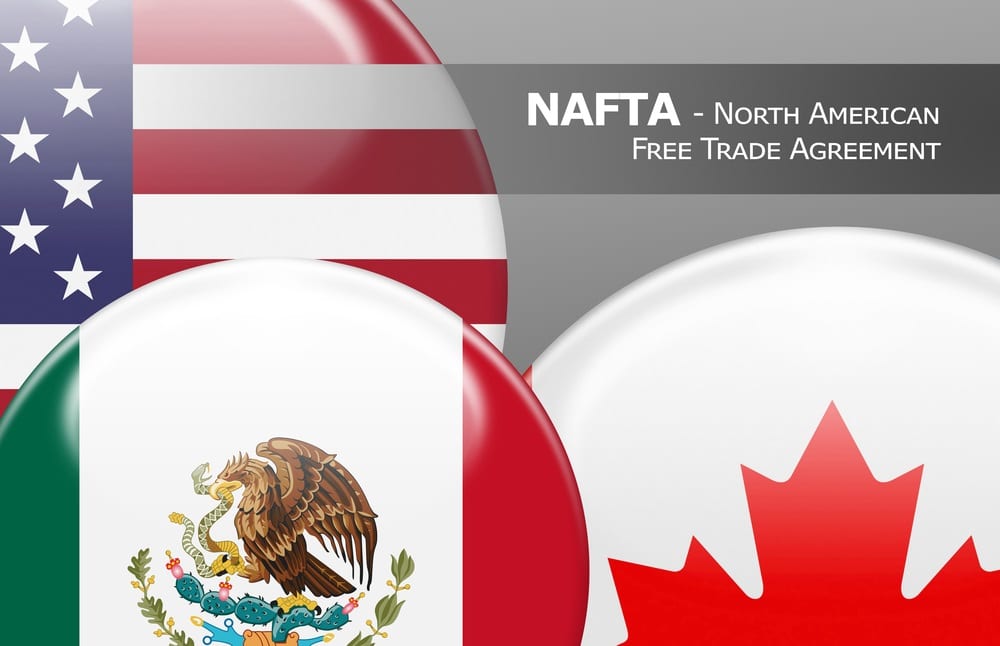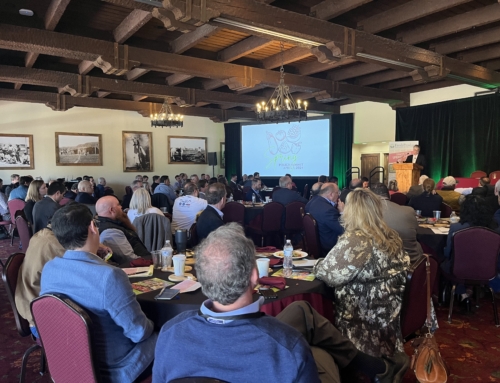In a letter to Rep. Michael Conaway, Chairman of the House Agriculture Committee, FPAA filed the following rebuttal to comments from Mr. Reginald Brown before that Committee.
Following is the text of the letter:
Aug. 8, 2017
Chairman Michael Conaway
House of Representatives, Agriculture Committee
1301 Longworth, Washington, DC 20515
RE: Rebuttal to Comments from Reginald Brown before House Committee on Agriculture Hearing on Renegotiating NAFTA: Opportunities for Agriculture on July 26, 2017
The Fresh Produce Association of the Americas (FPAA), serving U.S. companies involved in the distribution of fresh produce, appreciates this opportunity to rebut and provide perspective to certain comments made by Mr. Reginald Brown of the Florida Tomato Exchange in both written and verbal testimony before the House Committee on Agriculture Hearing on Renegotiating NAFTA: Opportunities for Agriculture on July 26, 2017.
Mr. Brown’s written and oral testimony rely on the overarching – and erroneous – assumption that the fresh fruit and vegetable industry in the United States, Mexico and worldwide has remained static and without innovation since the time NAFTA has been in effect. Building upon this premise, Mr. Brown then points to “Mexico’s known unfair advantages” as the conclusion why his constituents have lost market share in the industry. This assumption and its conclusion could not be more wrong.
With the exception of Florida and, in particular Florida tomatoes, Mexico and the rest of the world have transformed the fresh fruit and vegetable industry. In response to consumer demand, innovations in production practices are commonplace in Mexico, such as protected agriculture[1], efficient irrigation techniques, new product packaging and new and improved varieties of products have transformed the marketplace. Produce items that were not even thought of at the time NAFTA was negotiated include grape tomatoes and long shelf-life tomatoes, along with specialty retail packs of vine ripe tomatoes, such as tomatoes on the vine. Now virtually every supermarket stocks such items.[2]
Moreover, such items are available at a reasonable price on a year-round basis to virtually every consumer. Such are the benefits of fair competition in an open market.
For whatever reason[3], Florida has not kept pace with these innovations. Using tomatoes as an example, Florida largely produces the same fertilizer and pesticide reliant gassed mature green tomato which has been the model in Florida for generations[4]. When given the choice, consumers have demanded fresher varieties of vine-ripened tomatoes, roma tomatoes, grape tomatoes and cocktail tomatoes. The rest of the United States and the world have met that demand.
To simply point to Mexico’s “explosive growth in specialty crops”[5] without analyzing the vast changes in the produce industry noted above, as well as consumer preferences that have produced that growth, makes Mexico a scapegoat for Florida’s lack of investment and innovation.
Mr. Brown’s written and oral testimony also falsely imply that such innovations would not exist without “government help.”[6]
Government assistance is only a small part of the overall contributions to such innovations. Enormous private investment – some from the United States – has made such innovation possible. In live testimony before this Committee[7], Mr. Brown was forced to admit that several U.S. producers in California and Florida are also investing in growing operations in Mexico[8]. These investments are allowing those United States producers to extend and grow their own markets by taking advantage of Mexico’s varied growing climates and complimentary production seasons.
Mr. Brown also dodged a question posed by Rep. Panetta regarding Florida producers’ own investment in growing operations in Mexico which he characterized as “[…] a very limited number of farmers that have some tomato operations in Mexico.”
In fact, Florida companies are deeply integrated into the Mexican produce supply chain, for the competitive advantages outlined above.
As an example, publicly-available produce industry databases such as Blue Book Services and RedBook Credit Services show that several prominent Florida vegetable packers and their related companies also operate importer of record warehouses[9] for Mexican produce in Nogales, Ariz., which for more than 100 years has been the import hub for “winter produce” from Mexico.
In response to Rep. Panetta’s questions during the hearing Mr. Brown also admitted that he did not know the percentage of investment by United States companies in Mexican specialty crop production and that he did not “know that there is a percentage anywhere in existence that I’ve ever been aware of.”[10]
Indeed, such information is closely held for competitive reasons. Yet, even in 2007, Senator Dianne Feinstein, Democrat of California, displayed a map on the Senate floor showing more than 46,000 acres that American growers were cultivating in just two Mexican states, Guanajuato and Baja California.[11] Surely, the investment has grown greatly in the past decade.
Prudence would dictate that before any dramatic restructuring of the anti-dumping laws to create “a separate domestic industry provision for perishable seasonal products in antidumping and countervailing duty proceedings,” lawmakers should investigate the real economic investment in such crops by United States interests. Without such analysis, lawmakers could unwittingly place the ability to manipulate the market in the hands of a self-interested industry — with the United States consumer paying the price.
An example of such a scenario is illustrated in Mr. Brown’s own testimony. In response to a question from Rep. Rick Allen, Mr. Brown poses the following scenario:
Mr. Brown: Right now under U.S. trade law, in order for a dumping case to be filed, to have standing, you must have 51 percent of all like product in the country as a petitioner in that process. This basically handicaps any regional, seasonable, perishable producing entity. For example, our Florida strawberry industry, which is 15% of the domestic supply. Most of the rest of the domestic supply comes from California. But in the period of the winter months, from December to March when California is a minor producer, if a producer at all, to any great extent, we are competing with Mexican product coming into the country at very low prices and it basically is depressing the domestic strawberry market during that period of time. [12]
Mr. Brown’s testimony clearly indicates that he and his constituents want antidumping laws changed so that even a producer of only 15% of the domestic supply of strawberries could file an antidumping suit if any other domestic producer (such as a producer in California) is a “minor” producer and the Florida strawberry producer is facing competition from Mexico. Aside from the obvious problems in defining such a “seasonal market” and defining who may or may not be a “minor producer,” such a change poses a real threat to the United States consumer.
Assuming that there are also Florida producers who have invested in strawberry growing operations in Mexico which would be subject to such a suit, and assuming that along the lines of the historical tomato antidumping case the case is resolved with an suspension agreement that establishes a minimum sales price[13], the Florida producers working on both sides of the case would in effect be able to establish a “floor price” which would guarantee a minimum sales price for essentially all strawberries in the market. In turn, consumers would be forced to pay this price. Finally, even if a suspension agreement were not reached and Florida producers did not stand to gain from being on both sides of the game, United States consumers would still bear the burden of having less strawberries available and paying more for them because imports were restricted.
The foregoing are just a few of the reasons the proposed “separate domestic industry provision for perishable seasonal products in antidumping and countervailing duty proceedings” is not justified as a limit on free trade. The proposal is a thinly disguised attempt to impose trade restrictions designed to prop up an industry mainly centered in Florida that for myriad reasons relies on an outdated, archaic business model. Finally, if successful, such restrictions will result in less choice, limited supplies and higher prices for the American consumer.
The FPAA stands ready, willing and able to provide the Committee with any further information that the Committee needs to accurately view the entire picture of agricultural trade under NAFTA which everyone, except Florida, views as a resounding success.
Sincerely,
Lance Jungmeyer
President
Fresh Produce Association of the Americas
[1] Significantly increased yields in protected agriculture result from crops not being subjected to animal and insect damage, wind scarring and even excessive sunlight. These factors result in a large increase in market quality fruit and a reduction in waste. Protected agriculture also means reduced pesticide use which taken all together results in increased customer satisfaction and repeat purchases.
[2] Just one discussion of consumer demand appears here: http://ucanr.edu/datastoreFiles/234-2806.pdf
[3] Florida’s reasons for failing to keep up with the worldwide pace of innovation are varied and are not attributable to “Mexico’s known unfair advantages”. Florida’s geography which is prone to violent hurricanes and tropical storms may explain some of its lack of adopting protected agriculture such as shadehouses which are prone to such storms. Florida’s soils and water quality are not naturally suited to intensive agriculture. See, G. McAvoy and M. Ozores-Hampton, Univ. of Florida, Unique Challenges for Florida Growers in tomato and pepper production 2007, updated 2014. Real estate values and incentives to develop former farm land into more lucrative residential developments also play a part.
[4] Mr. Brown’s characterization of his constituents as “family farmers” is not accurate. For a good background of industrial farming by a small group of politically connected businessmen in Florida, see Barry Estabrook’s “Tomatoland” – How Industrial Farming ‘Destroyed’ The Tasty Tomato, http://www.npr.org/2011/06/28/137371975/how-industrial-farming-destroyed-the-tasty-tomato.
[5] See, Mr. Brown’s written testimony at p 2.
[6] See, Mr. Brown’s written testimony at p.2.
[7] Note – Time Stamps at the beginning of each line of questioning reflect where in the hearing the questioning began. The full hearing is available on youtube.com, here: https://www.youtube.com/watch?v=F4wZUGHmlms
[8] See, transcript of hearings beginning at 1:26:50 wherein Mr. Brown in response to Rep. Panetta was forced to admit that “certain California growers they will tell you that their production in Mexico is benefiting them, and benefiting your family and my family by allowing us to eat fresh fruits and vegetables year-round.”
[9] FPAA would be happy to provide more specific information at the Committee’s request.
[10] See, transcript of hearings beginning at 1:26:50 wherein Mr. Brown in response to Rep. Panetta was forced to admit that “certain California growers they will tell you that their production in Mexico is benefiting them, and benefiting your family and my family by allowing us to eat fresh fruits and vegetables year-round.”
[11] http://www.nytimes.com/2007/09/04/world/americas/04iht-export.4.7380436.html
[12] This testimony appears at 1:31:30 in the hearing.
[13] As Mr. Brown’s written testimony has summarized, the tomato antidumping litigation has resulted in such an agreement establishing a “floor price” which with minor variations has been effect for over 15 years.






